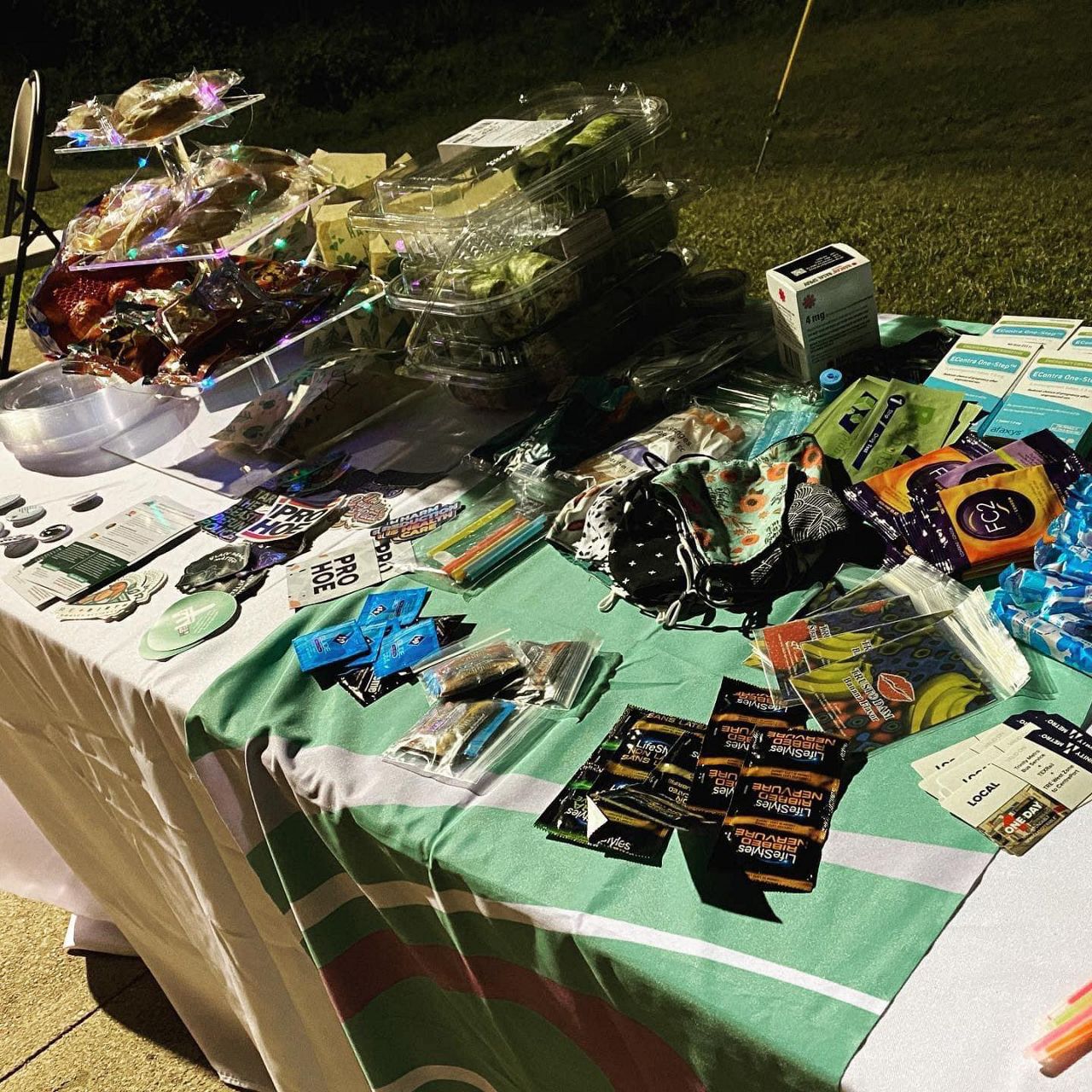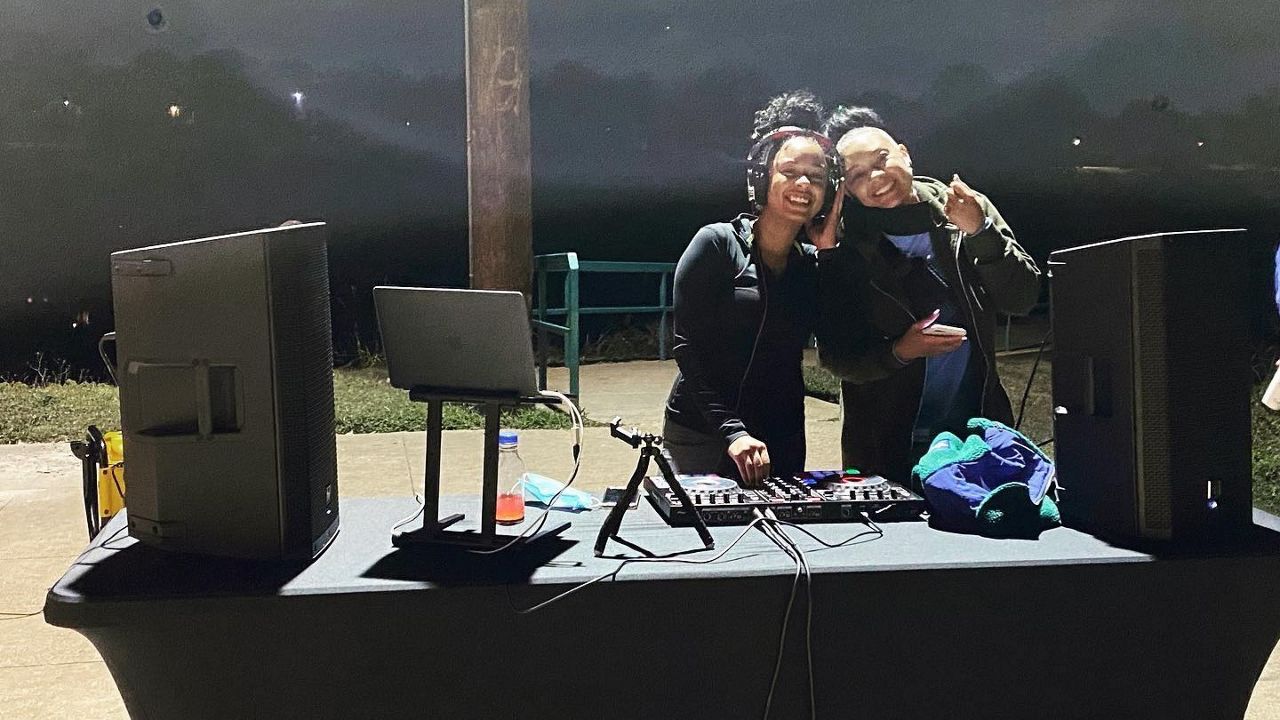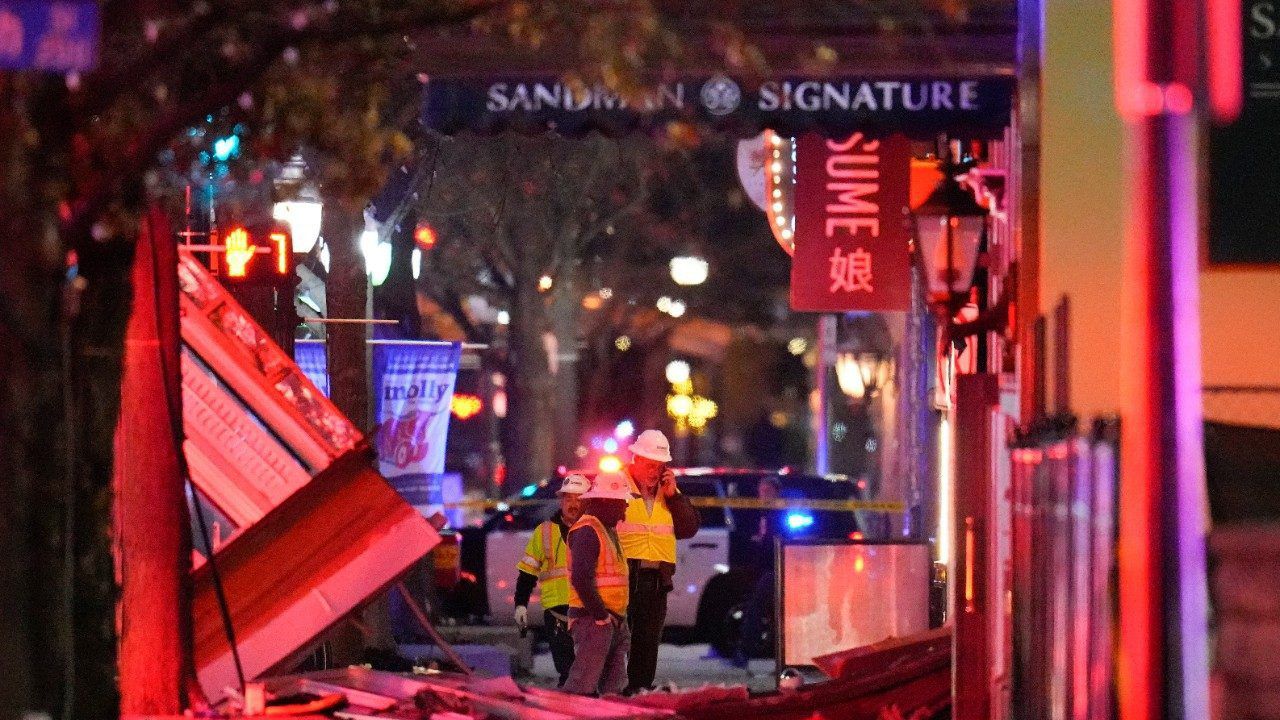FORT WORTH, Texas — On a balmy Saturday evening in West Fort Worth’s Como Park, a deejay was spinning tunes for a crowd of 20 or so people, as attendees ambled between a tarot card reader and glow-in-the-dark snack bar.
The scene from about a week ago was similar to a birthday party or some other celebratory occasion. No passer-by would ever suspect the event’s focus was to test area residents for sexually transmitted infections, including Hepatitis C and HIV/AIDS.
Since May, organizers of Tested + Rested — a nomadic monthly event series that aims to remove the stress for people being tested for an STI — have been filling in some of the gaps left by Tarrant County Public Health. The department shut down its Arlington testing site in mid-March, as staff focused on reigning in COVID-19.
General STD/STI testing outreach events were also canceled due to mandates related to the Coronavirus and staffing limitations, according to a spokesman for the county. The health department reopened its Arlington location and resumed some mobile testing in early October, but at a vastly reduced capacity because of COVID-related precautions.
The Tested + Rested series is a collaboration between two grassroots nonprofits – O.D. Aid, an overdose prevention and harm-reduction program that distributes naloxone and sterile syringes, provides overdose prevention training, and more; and the Re + Birth Equality Alliance, which works to build and protect the BIPOC and LGBT GNC communities.
O.D. Aid founder and president Lizzie Maldonado said the series was born after she and Jennifer Sarduy of Re + Birth Equity Alliance got their hands on about 100 rapid response HIV and Hep C tests and attended training on how to administer them.
“The rapid response testing is autonomous,” Maldonado said. “You can do it to yourself. So we package them all up so that people can either take the test home or receive a test on site. Maybe 30 people came to that first event and got tested, and then we heard from people that their experience testing with us was just really different from how they experience clinical testing.”
For starters, Maldonado said, the volunteers don’t take down any information from test seekers. The group doesn’t have to report positive cases to the Center for Disease Control, which would be the case if a person tested positive through the county. Another reason the series has been so well received, Maldonado said, is the makeup of the group’s volunteers.
“Our volunteers are either women of color, non-binary, or gender-expansive folks, so that feels a certain kind of way as well,” she said. “People in the community like to see people who look like them and can relate to them. That’s the kind of thing we mean when we're talking about breaking stigmas and challenging barriers to testing.”
The group began to solicit and receive donations of testing kits and other supplies. After receiving grant money, the group’s organizers committed to one event per month until the pandemic is over.
Not all of the group’s events are parties in the park. Tested + Rested is seeking out populations that might not ordinarily get tested. Fort example, the group’s next event involves testing at a homeless encampment.

Now that Tarrant County Public Health has resumed testing, Maldonado said she’s not sure what direction the group will take since the program started as a way to make up ground the county lost while chasing the pandemic.
“Now we're recognizing that the way we do testing is actually the program itself and not just proving the access,” she said. “It's about making testing feel less scary, challenging, and to foster the kind of healing components that go into the events or participants.”
Lonetta Wilson, a social worker with the county who attended the recent Tested + Rested event, said that the community connections that Tested + Rested have made give the volunteers access to people who wouldn’t ordinarily walk into a clinic, such as sex workers, addicts, and other high-risk populations.
“Some folks don't want to walk into the public health department to get tested, but they might be more apt to come to a community event where there's a DJ and there's other people there who don't have on white coats or badges and things like that,” she said. “They tailor events to communities of color and are really providing resources and services in the neighborhoods that need it most.”
A spokesperson for the county said there’s no way to know how the pandemic impacted STI infection rates in Tarrant County. He also added the county’s high-risk prevention teams continued to offer testing and referrals for “priority infections” throughout the pandemic.
“Tarrant County Public Health’s preventative medicine clinics were impacted [by the pandemic] much less,” he said. “This group provides direct care to individuals in need, including those with HIV and STD/STIs. This includes continuing to test for new infections and diseases. In addition —and like the private medical providers — Tarrant County Public Health has offered telemedicine options to its clients to help ensure their continuity of care.”
Maldonado said the Tested + Rested volunteers plan to continue their work even after COVID-19 restrictions have been lifted.
“I'm kind of excited to see what this could look like outside at a place where people are already going to be gathering — where anyone can just grab a test, put it in their purse, or just get a screen while they walk around,” she said. “We're trying to normalize testing and make it much less of a clinical kind of experience.”









